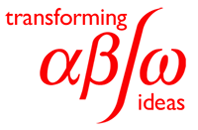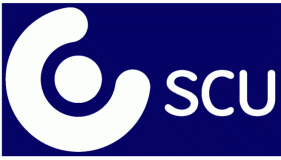Category Archives: Science Writing & Journalism
Science Journalism Summer School 2017
Every two years, the Association of British Science Writers (ABSW) hosts its one-day Science Journalism Summer School. The 2017 event took place on 5 July at the Wellcome Trust in London, and I went along as a budding freelance science writer to learn a few tricks of the trade.
I was joined by 135 other delegates on the airy and light sixth floor of the Trust’s superb glass-fronted Euston Road building on one of the hottest days of the year. With me were undergraduates, PhD students, freelancers of many kinds, and established science journalists working for a range of organisations. Oh – and a colleague (Clare Gee) from my Masters course in Science Communication here at UWE! Billed as a 12-hour working day, I indeed arrived for coffee at 9am, and did not depart until 8.30pm after the superb networking session with commissioning editors from a number of science publications, such as New Scientist.
BBC Science Correspondent Pallab Ghosh opened the proceedings, and the format for the rest of the day followed short talks with panel discussion and audience Q&A. We learned about new media trends, particularly around digital news consumption, in the context of the question ‘Where have all the science correspondents/journalists gone?’. ITV’s Science Correspondent Alok Jha extolled the virtues of critical science journalism in the fake news world, asserting the need to communicate conflicts between scientific researchers and cast more light on the imperfections and uncertainties of the scientific endeavour. That doesn’t sit so easily with being a proponent of science, which most of us are.
A session on pitching skills was most revealing, with commissioning editors suggesting that they aren’t receiving enough news pitches (short 250-word pieces) alongside the veritable flood of feature pitches. They were keen to point out that background was largely irrelevant; if the story was good and the source reliable, they’ll take it. And one particularly good tip to remember is that editors often prefer to receive a ‘phonecall, with e-mail used as the follow-up.
The session on investigative reporting left a sense of how good for society the best journalism can be, despite the challenges around funding this type of work in today’s climate. Given the potential risks, freelancers were generally advised to steer clear of investigative reporting!
 Perhaps the highlight for me was the final session on “successful freelancing”. There were personal testimonies of the struggle to get going, to find sources of work, to carve out a niche area of specialisation. Max Glaskin, the successful, award-winning author of the magazine Cycling Science, offered a tremendous insight laced with some dark humour along the way. His successful writing career has allowed him to diversify his sources of income through giving talks, chairing panel discussions and undertaking specialist scientific consultancy.
Perhaps the highlight for me was the final session on “successful freelancing”. There were personal testimonies of the struggle to get going, to find sources of work, to carve out a niche area of specialisation. Max Glaskin, the successful, award-winning author of the magazine Cycling Science, offered a tremendous insight laced with some dark humour along the way. His successful writing career has allowed him to diversify his sources of income through giving talks, chairing panel discussions and undertaking specialist scientific consultancy.
All-in-all, a long but rewarding day, worth every penny. If you want to meet several commissioning editors in one place at one time and establish relationships, then this biennial Summer School is a good investment of your time and money.
You can read my blog, Sykes on Science, at: www.sykesonscience.wordpress.com
Ben Sykes, MSc Science Communication student, UWE
Steven Pinker’s brilliant book teaches some useful lessons in science writing
Writing is easy until you learn how to do it.
I still remember my first weeks as a trainee journalist on a local newspaper in Weston-super-Mare. Filled with confidence, I’d sit there in my tartan trousers (I’d spent that last year studying in Glasgow) thinking I’d got it cracked. After all, I could write – I’d been on a journalism course after all.
 The thing is, more often than not, my finely crafted prose came back covered in red pen from a sub editor who didn’t like what I’d written and wanted A LOT of changes. A little hurt, I would make the changes. Surely it was them who was wrong?
The thing is, more often than not, my finely crafted prose came back covered in red pen from a sub editor who didn’t like what I’d written and wanted A LOT of changes. A little hurt, I would make the changes. Surely it was them who was wrong?
It took a while, but slowly I realised what they were doing. With their changes, my stories were livelier, clearer and more succinct. And just generally, well, better.
So, in that few months, I learned what was to become my most important lesson as a writer – to learn from others. As I got better I found that, paradoxically, writing had got more challenging – there was much more to think about if I was going to do it well. My stories were still edited and reworked by others as I learned. And it still hurt.
 Now, 20 years into my writing career, up pops a book that crystallises what has been a lot of hard-won knowledge about writing, Steven Pinker’s The Sense of Style . Had Pinker written it 20 years ago, it might have saved me a lot of painful lessons. I can’t claim to have found it myself – I was introduced to it by Lisa Melton, Senior News Editor at Nature Biotechnology , who teaches on our MSc in Science Communication at UWE.
Now, 20 years into my writing career, up pops a book that crystallises what has been a lot of hard-won knowledge about writing, Steven Pinker’s The Sense of Style . Had Pinker written it 20 years ago, it might have saved me a lot of painful lessons. I can’t claim to have found it myself – I was introduced to it by Lisa Melton, Senior News Editor at Nature Biotechnology , who teaches on our MSc in Science Communication at UWE.
So, in the spirit of saving a few painful lessons, I have distilled a few – but by no means all – of some of the key points Pinker makes that are likely to help science writers.
- “Good writing is understood with the mind’s eye” is Pinker’s way of saying that when we write we need to create mental pictures in the minds of our readers. And to me, this not only applies to when we’re actively describing something or someone we’ve seen; it’s also when we get down to the nuts and bolts of science writing – explaining processes and mechanisms and systems. When someone can visualise a mechanism inside a cell organelle or how one subatomic particle interacts with another, they’re more likely to get it.
- Pinker says good writers “use concrete imagery over familiar verbiage and abstract summary”. In other words, describe what you’re describing vividly, with specific new, fresh words rather than abstractions.
- Cut out the “metadiscourse” – the use of descriptions of what you are going to describe; words such as subsection, review and discussion. Pinker puts it far better than I could. “Inexperienced writers often think they’re doing the reader a favour by guiding her through the rest of the text with a detailed preview. In reality, previews that read up link a scrunched-up table of contents are there to help the writer, not the reader.”
Pinker also describes what he calls the “Curse of Knowledge” – the inability for someone to understand what it’s like for someone else to not know what they know. I’ve found as a science writer, it’s not just scientists who can fall victim to this curse (and not all of them do). But writers can too. If you’ve spent days or weeks researching a topic, you become a ‘mini expert’ and may struggle to explain things in a way non-experts would understand. Pinker does come up with some useful tips – such as avoid jargon and technical language. Nothing earth shattering there. And adding brief explanations for technical terms. Again, not rocket science. The big challenge is recognising when to do it.
Andy Ridgway

The long and winding road to science journalism
How do you get your first job in science communication? That’s not a straightforward question to answer – when it comes to science journalism at least. My experience of working in the industry showed me that having some kind of experience – either in the form of a placement or a few articles published – can be invaluable. Just as important as any qualification, in fact. And if you’ve won some form of recognition for your writing – perhaps through a competition – that can have a big impact on your job prospects too. It’s probably not too much of an exaggeration to say that there are as many routes into science writing as there are science writers.
It’s out of this experience that the UWE SCU Science Writing Competition was born. Targeted specifically at those who haven’t had popular science writing published before, it is now in its second year.
Given its target audience of new writers, this year we (the SCU that is) decided to provide writing advice in the form of blogs from the judges and other respected science writers, including one of last year’s winners – Emily Coyte .
There were another couple of important additions too, including a partnership with the Royal Institution – an organisation with a track record for nurturing new talent – and a survey of the competition participants aimed at gaining a fuller picture of the opportunities and barriers they face in breaking in to the science writing industry. The survey makes for interesting reading.
For starters, all of the 49 people who took part in the survey (out of roughly 90 competition entries) said they were interested in a career in science writing in some form – some as full time writers or editors and others envisaged writing as a sideline to a career in research science. Many participants were students and most (almost 90%) had not had any form of science writing training. Of those who hadn’t had training, a fairly high proportion (45%) said they were not aware of any training courses.
However, it’s where the responses to this survey – from those who want to be science writers – are compared with the responses from another survey we conducted – from those who are already science writers – that things get really interesting. But this isn’t the place to go into any detail on that – there will be more on that later. So watch this space…
As for this year’s science writing competition, the shortlist has now been drawn up and the judges will meet in August to decide the winners, who will be announced on 1 September 2016.
Andy Ridgway
Science Writing Competition now open
It’s been a busy few weeks in the office getting ready for the UWE Bristol SCU Science Writing Competition 2016. We are looking for 700 words on “the next big thing in science”.
Entrants can be residents anywhere in the world, but must be non-professionals (professional journalists and anyone else who writes for money). All others, including scientists and bloggers, are welcome to apply. There are no residency restrictions, and we have separate categories for under 18s and over 18s. Closing date for applications is 24th June 2016. For full details, please see the SCU website.
We’re excited to have an impressive judging panel on board, who’ve prepared some excellent tips for new science writers. Fascinating stuff for newbies and old-timers alike.
The competition is run by UWE Bristol’s Science Communication Unit (SCU) in partnership with BBC Focus magazine and the Royal Institution.


